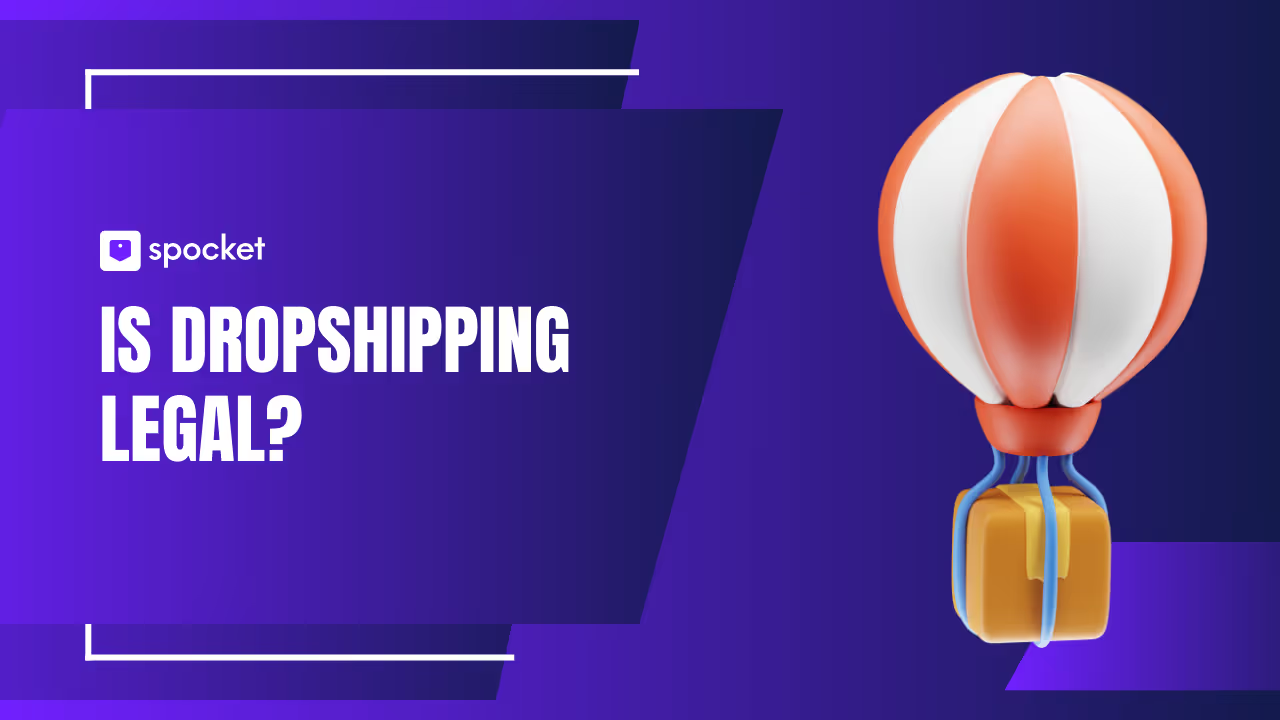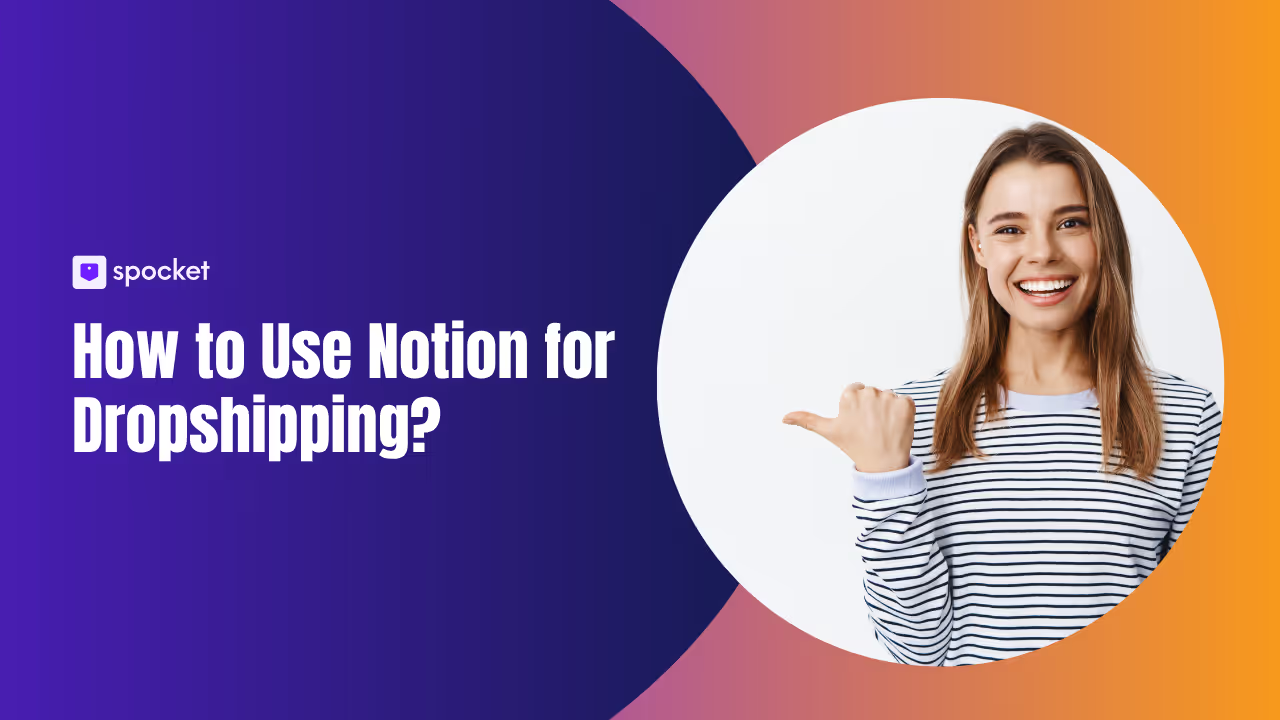You’re scrolling on your phone, hungry for fresh income ideas.
But here’s the big question:
- Is dropshipping legal?
- Have you doubted the online hustle?
- Feeling uncertain about complicated laws and regulations?
Let’s cut through the confusion right now. If you’ve ever thought about starting a dropshipping business, you deserve the truth. Because ignoring the legal side could cost you more than just money. It could damage your brand and your dreams.
In this blog, I’ll show you how dropshipping works, the profits you can expect, and how to stay on the right side of the law. No fluff. No complicated jargon. These are honest, actionable steps to help you build a thriving, legal online store. Let’s jump in and make your dropshipping venture safe, profitable, and unstoppable together. Ready? Let’s go!
What is Dropshipping?
Dropshipping is an e-commerce model where you sell products online without holding inventory. Instead, you partner with a supplier who ships items directly to your customers. You act as the middleman. You get orders on your site, forward them to the supplier, and they handle the packaging and shipping.
This approach is popular because it is simple. You don’t need a warehouse or massive upfront costs. Instead, you focus on marketing, customer service, and building a brand while the supplier does the heavy lifting.
But there’s more to dropshipping than picking any supplier and launching a site. You need reliable partners, a clear niche, and legal awareness. This is how you keep your customers happy and your business profitable in the long run. Dropshipping grows fast, but success depends on strategy, compliance, and ethical sourcing.
How Does Dropshipping Work?
Dropshipping involves three main steps: listing products, processing orders, and fulfilling shipments. First, you source products from suppliers who allow dropshipping and showcase them on your online store. When a customer buys an item, you forward the order (and payment) to your supplier. Next, your supplier packs and ships the product directly to the customer.
Throughout this process, you manage customer relations and marketing. Your job is to ensure every buyer trusts you enough to click “Buy Now.” Meanwhile, your supplier handles logistics, inventory, and shipping details. The cost difference between the wholesale price and your retail price is your profit. This is how dropshipping works.
Benefits of Dropshipping
Dropshipping offers a low barrier to entry. You don’t need a massive budget for storage or inventory, which means your initial costs are more manageable than those of traditional retail. You also save on operating expenses, like warehouse rental or packaging supplies.
It’s flexible. You can run your store from anywhere, as long as you have an internet connection. Want to test new dropshipping products quickly? Dropshipping makes it easy. You can add new listings, track performance, and remove anything that doesn’t sell.
One significant benefit is reduced risk. You only pay for products after making a sale. This approach reduces leftover stock or waste. It’s also scalable. As sales grow, you can expand your product line without hiring more staff or renting a larger space.
How to Start Dropshipping Step-by-Step
Starting a dropshipping store doesn’t have to be overwhelming. Follow these steps, and you’ll be on the right path:
- Choose a Niche: Pick a dropshipping niche that sells well and interests you. Research trends, analyze competitors, and find potential profit margins.
- Secure a Domain and Hosting: Choose a short, memorable domain name. Domain costs vary, but usually around $10-$15 per year. Depending on your needs and platform, hosting can cost anywhere from $5-$30 per month.
- Build Your Store: Platforms like Shopify, Wix, or WooCommerce make setup easy. Expect monthly fees ranging from $29-$79 for basic plans. Make sure your theme is mobile-friendly.
- Partner with Reliable Suppliers: Find vetted suppliers using reputable marketplaces or apps. This is crucial for product quality and shipping reliability.
- Set a Budget for Ads: Advertising can cost between $5 and $50+ daily. Start small and scale up when you see results. Track ROI to avoid wasted spending.
- Optimize Operations: Install automation apps, streamline order processing, inventory tracking, and customer support, and keep your store organized and professional.
- Stay legal: Check local laws, register your business, and follow tax regulations. Taking these steps ensures a stable, scalable online venture.
How Much Profit Can You Make with Dropshipping?
Profit depends on product margins, marketing costs, and sales volume. Some dropshippers make a few hundred dollars a month, while others generate thousands. Most items you source at wholesale prices offer a 20% to 50% profit margin. High-ticket products can bring more substantial earnings, but competition can be fierce.
For instance, if you sell a product for $50 and your supplier charges $25, your gross margin is $25. Subtract advertising, platform, and transaction fees to see your net profit. That might be $10-$15 per sale.
The key is scaling carefully. If your ads convert well, you can reinvest profits to ramp up campaigns. Over time, consistent testing and optimization can push monthly earnings into the four or five figures.
Is Dropshipping Legal in the World?
Yes, dropshipping is generally legal worldwide. Most countries allow this e-commerce model. It’s a business, but you must follow consumer protection laws and tax regulations. The main question many people ask—is dropshipping legal when suppliers are located overseas—often arises because it can introduce shipping delays or quality concerns. Yet, those issues don’t automatically make it illegal.
Each region might have unique import restrictions. So, do your due diligence. Familiarize yourself with customs rules, product compliance laws, and required documentation. Also, make sure you respect trademark and copyright regulations. Selling counterfeit items can land you in serious trouble.
The bottom line is that dropshipping is legal. Absolutely. However, always confirm local requirements. Aim for reputable suppliers and maintain open communication with your customers.
Which Regions Don’t Allow Dropshipping?
Strict bans on dropshipping are rare. However, some countries have tight controls on online retail. Certain Middle Eastern nations require local licenses or direct representation. China also limits foreign-owned businesses from selling directly to Chinese consumers.
Some countries impose heavy import taxes, making dropshipping unprofitable. Others heavily regulate specific product categories, such as health supplements or electronics. Always check local laws if you plan to market to regions outside your home base.
“Is dropshipping legal?” gets complicated if your target area has tricky rules. You might face licensing demands, heavy tariffs, or extra paperwork. If a country’s regulations are unclear or challenging, focus your efforts elsewhere. Many dropshipping-friendly markets welcome e-commerce innovation.
What Products are Legal to Dropship?
You can dropship most consumer goods, which are not restricted or counterfeit. Popular legal niches include electronics accessories (like phone cases), eco-friendly household items, pet supplies, baby products, and athleisure wear. Digital gadgets like headphones can be profitable if you ensure they meet safety standards.
Consider focusing on proven bestsellers. For instance, baby carriers must adhere to strict safety regulations. Pet grooming tools can be profitable if they don’t violate any cruelty standards. If you’re selling cosmetics, check for ingredient restrictions in your target country.
In short, is dropshipping legal for these products? Generally, yes, as long as they’re not contraband or heavily regulated. Always confirm your suppliers provide compliant, high-quality items. You avoid issues like returns, disputes, or legal penalties.
Which Niches Should You Not Dropship?
Specific niches are outright banned or heavily regulated. Drugs, weapons, and adult products have strict legal frameworks in many countries. Selling these could require special licenses or entirely different business models. Counterfeit items are also a no-go. They violate intellectual property laws and can lead to hefty fines.
Some supplement categories, especially medical claims, attract legal scrutiny. High-risk niches like vape products or CBD might be legal in some places but heavily restricted in others. “Is dropshipping legal?” in these niches depends on local laws.
When in doubt, steer clear if regulations are vague or ever-changing. Focusing on safer products helps build trust with customers. It also lowers your risk of legal hassles, letting your store grow without constant worry.
How to Deal with International Dropshipping Restrictions
Navigating international rules can be tricky. Start by researching the import laws of each country you plan to serve. Some enforce strict labeling requirements or safety certifications. Others ban certain materials, like leather, from endangered species or ingredients with harsh chemicals.
If you’re shipping internationally, expect potential customs checks. Provide accurate paperwork to avoid delays or fines. Communicate clearly with your supplier about packaging standards. Make sure they correctly declare the product’s value and nature.
If the question “Is dropshipping legal in multiple countries?” lingers, talk to a trade compliance expert. They can clarify complex issues and help you avoid pitfalls. Where possible, focus on regions with clear regulations or minimal trade barriers. Simplifying your target audience can reduce legal complications and ensure smoother deliveries.
Other Challenges with Dropshipping
Aside from legal considerations, dropshipping has common hurdles. Slow shipping times can frustrate customers. Competition is also fierce, with many stores selling the same products. Standing out requires strong branding, unique product descriptions, and excellent customer support.
Inventory uncertainty is another challenge. If your supplier runs out of stock, you can’t fulfill orders. This leaves you scrambling for alternatives. Additionally, marketing costs can skyrocket if you don’t optimize campaigns.
Then there are returns and refunds. You depend on your supplier to handle these efficiently. If they fail, your reputation suffers. Before starting, weigh these factors: Is dropshipping legal and practical for your goals? You can overcome these obstacles and thrive with proper planning and reliable partners.
Dropshipping Taxes and Customs
Taxes matter. Even if dropshipping is legal where you live, you must meet your tax obligations. Register for a business structure, like an LLC or sole proprietorship, and set up a system to track sales. Collect sales tax if your location and your customers’ jurisdictions require it.
Import taxes and customs duties may apply depending on where the goods are shipped. Some suppliers mark parcels as “gifts” to dodge taxes, but this is risky. Stick to the proper classification to avoid penalties.
Consult an accountant or tax advisor. They’ll help you understand your obligations, from quarterly filings to annual returns. Properly handling taxes signals professionalism and builds trust. Neglecting these steps can lead to audits, fines, or worse.
Why Start Dropshipping?
Dropshipping can be an excellent gateway to entrepreneurship. You can test business ideas without massive capital. Plus, you get to practice marketing, product research, and branding. It’s a real-world crash course in e-commerce.
This model also gives you freedom. You can work from anywhere with an internet connection, set your hours, and experiment with different product lines. The barrier to entry is low, but the growth potential is high if you play your cards right.
You might wonder, “Is dropshipping legal enough to justify my time?” If you follow regulations and choose legit suppliers. Success stories abound of people scaling from zero to six-figure monthly revenue. If you’re ready to hustle, dropshipping is a proven path to online income.
How Much Time Does It Take to Start a Dropshipping Business Successfully?
Timeframes vary. Some entrepreneurs launch within a week, while others spend months perfecting their stores. Your setup speed depends on your experience with e-commerce platforms, product research, and digital marketing—also, factor in time to finalize branding elements like logos and store design.
Growing the business can take longer. You need to optimize ads, learn SEO, and build customer relationships. Sometimes, it takes 3-6 months to see consistent profits. Others might break even faster if they pick winning products right away.
Don’t rush. Put effort into finding reliable suppliers and clarifying shipping details. This will ensure fewer headaches down the road. In short, the time to success is flexible. However, consistent work, intelligent testing, and a focus on legality speed up your path to actual results.
How to Dropship with Spocket
Spocket simplifies sourcing and fulfillment. They partner with the best US and EU dropshipping suppliers, ensuring faster shipping and higher product quality. With over 100 million winning items, you’re spoiled for choice. Spocket’s app integrates with popular platforms like Wix and Amazon for automated inventory tracking and one-click product imports.
They also offer print-on-demand customization to add a personal touch. Their 24/7 VIP customer support helps you solve issues quickly. Need branded invoicing? Spocket has it. Want to test products before going all in? Order samples without any minimum order requirements.
If you still ask, “Is dropshipping legal with Spocket?” Yes! They vet their suppliers and ensure compliance. You get peace of mind and a 14-day free trial to get started. Thousands of entrepreneurs trust them for a good reason.
Conclusion
Dropshipping is a fantastic way to enter e-commerce without massive startup costs. Yes, whether dropshipping is legal is legitimate, but you can stay fully compliant with the right approach. Build trust by working with verified suppliers, following local laws, and offering top-notch customer service.
Remember the basics: register your business, pay taxes, and maintain transparent policies. When done correctly, drop shipping can bring steady profits and incredible flexibility. Embrace the journey. Keep learning, adapt to market trends, and refine your strategies. Your online store can thrive if you put in the work and stay legally safe. Ready to drop the worries and start dropshipping? Use Spocket today!







































